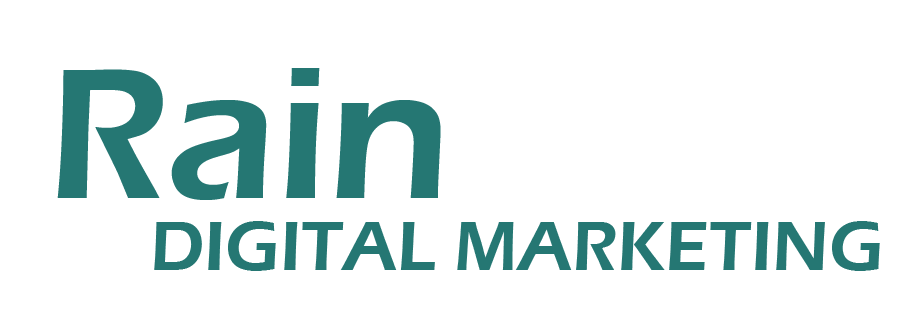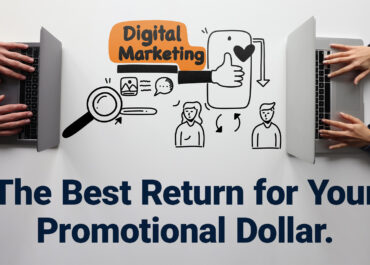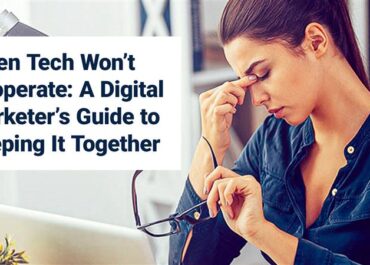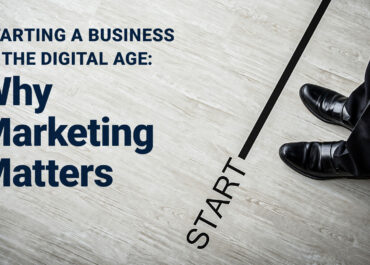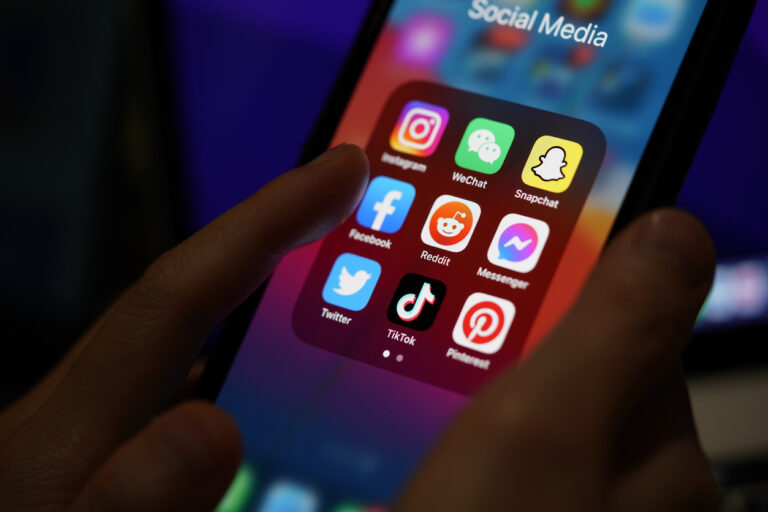The Evolution – and Personalization – of Digital Marketing
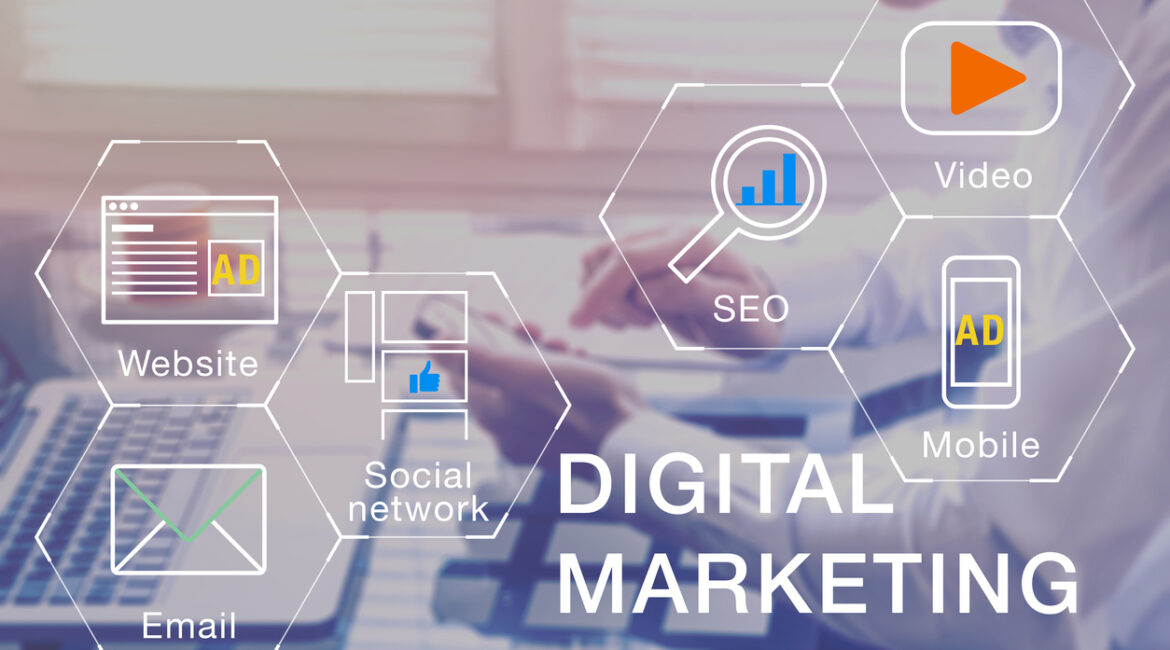
In today’s technology-driven world, it’s extremely important for businesses to establish a strong online presence to reach their target audience effectively.
You see, audiences are changing and, as a direct result, traditional marketing methods are no longer sufficient to capture the attention of consumers who increasingly rely on digital platforms on a daily basis.
This is where digital marketing comes into play…
Digital marketing refers to the use of digital channels such as search engines, social media, websites, email, and mobile apps to connect with potential customers and promote products or services.
It offers numerous advantages over traditional marketing, including cost-effectiveness, targeted reach, real-time engagement, and precise tracking of results.
Yes, digital marketing is definitely the 21st century answer to your marketing needs.
But — thanks to advancements in technology and the increasing reliance on digital platforms – even digital marketing has undergone significant transformations in the 21st century.
In this article, we will briefly explore the evolution of digital marketing in the 21st century and some of the key strategies that have emerged as game changers in this continuously developing industry.
Digital Marketing in the 21st Century
The 21st century has witnessed a digital revolution that has fundamentally changed the way businesses connect with their target audience… It goes by the name “smartphone.”
You see, the widespread adoption of smartphones in the 21st century has completely revolutionized the digital marketing industry and has even introduced a new branch of the marketing industry known as “mobile marketing.”
Mobile marketing is a type of digital marketing that focuses on optimizing websites, ads, and content for today’s mobile devices.
Mobile marketing also includes the development of mobile based tools such as apps that can offer convenience, personalization, and enhanced user experiences.
Businesses soon realized the importance of having this type of mobile-friendly presence to cater to the growing number of mobile users and — eager to take advantage of such revolutionary ideas – the mobile marketing industry was off and running.
With all these tools and platforms now at our disposal, you can see why traditional marketing methods are no longer sufficient to capture the attention of consumers who are increasingly relying on digital channels for information, entertainment, and shopping. As such, today’s businesses continue to adapt their marketing strategies to our new digital landscape by utilizing the smartphone and taking advantage of popular web-based platforms such as social media.
The Tools at Your Disposal
Social media sites like Facebook, Instagram, Twitter, LinkedIn, and YouTube have millions, if not billions, of active users and have become hubs of social interaction, content consumption, and brand discovery. Seeing this, marketers recognized the potential of social media to engage with their target audience on a more personal level, which has enabled businesses to have more direct conversations with their customers, receive feedback, and provide real-time customer support.
But social media is not the only tool to be utilized on today’s latest mobile devices… Apps too have gained tremendous popularity with users and offer businesses a unique opportunity to engage with users through push notifications, loyalty programs, seamless transactions, and – perhaps most importantly — personalized experiences.
Personalization and Data-Driven Marketing
In the 21st century, data has become the backbone of digital marketing strategies.
The ability to collect, analyze, and leverage data has transformed how businesses understand their target audience and tailor their marketing efforts. As such, personalization has become a key aspect of digital marketing.
To accomplish such personalization, businesses use data to segment their audience, understand their preferences, and deliver highly targeted and relevant content.
Don’t be mistaken, personalization goes way beyond addressing customers by their names…
A successful personalized campaign involves creating customized experiences, recommendations, and offers based on a user’s individual needs and behaviors.
This is best accomplished by tracking a user’s key metrics, analyzing their online behavior, and conducting A/B testing. By doing this, businesses can identify what’s working and what isn’t, allowing them to refine their marketing strategies for better results.
Now, there are some that, perhaps rightfully, will question the legality and ethics of such data mining.
After all, do we not have any privacy left in this world?
The truth is, ethical considerations play a critical role in data collection practices.
With the proliferation of technology and the increasing reliance on data-driven decision-making, it is crucial for any ethical business to address the implications surrounding the collection, storage, and use of personal and sensitive data.
Organizations should prioritize informed consent, transparency, data security, fairness, and compliance with regulations to ensure that data collection is conducted in an ethical and responsible manner, respecting individuals’ privacy rights and protecting against potential harm.
The Wrap Up
Remember, digital marketing is an ongoing process, and it’s essential to stay updated with the latest trends, technologies, and consumer behavior to stay ahead of the competition.
Experiment with different tactics, measure results, and refine your approach based on what works best for your business.
Once you find the strategy that works best for both you and your customer base, you won’t believe the results.
P.S. – If you’re eager to get your digital marketing campaign up and running, don’t hesitate to give the team here at Rain Digital a call.
Our combined years of marketing experience are just what your business needs to reach that next level of success.
… And by bringing on a team of competent marketers to help you on this transformative journey, you will free up more of your time so you can spend it thinking about more important things (like what to do with all your free time!)
